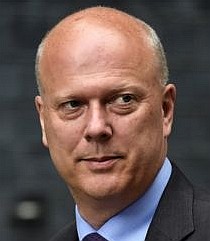
CHRIS
GRAYLING MP
Epsom & Ewell
WORKING TOGETHER FOR A THRIVING MARITIME SECTOR - Speaking at the Maritime 2050 strategy launch, Transport Secretary Chris Grayling describes how the UK can lead the charge in emerging maritime technology.
Good afternoon everyone, itís a great pleasure to join you today (24 January 2019).
Iíd like to thank the International Maritime Organisation for hosting this event.
One hundred and eighty years ago this country marked a great maritime first when Isambard Kingdom Brunelís Great Western steam ship ó kicked off an era of transatlantic travel.
The first vessel purposely designed to take passengers across the Atlantic, it travelled at a record speed ó taking as little as 13 days to make the crossing.
But thereís a little known story behind this great feat of engineering.
Brunel was only inspired to build the ship after someone complained that his famous London to Bristol railway line was too long. Brunel hit back by saying:
ĎWhy not make it longer? Build a steamship to go to New York and call it the Great Western?í
Well within just 2 years he had done just that and launched Britain on a trajectory which has resulted in the fast, efficient global travel we know today.
Itís an anecdote which highlights not just this countryís maritime heritage, but also what can be achieved by ambition and by thinking outside the box, no matter how big the challenge.
We need to apply that spirit of endeavour, imagination and fearlessness in our maritime industry today, as it faces 21st century issues such as
climate
change, the technological revolution and changing geo political trends.
For if we are to meet these challenges and make the most of the opportunities of the coming decades we need a clear pathway.
Thatís why today we are launching Maritime 2050 ó our shared vision for the industry over the next 3 decades.
A vision for every area of our maritime sector, from giant container vessels and huge cruise liners, to leisure ships, like those run on the
Thames by City Cruises, which I visited earlier this afternoon.
And carbon fibre yachts ó such as those of the Ineos Racing Team, which is aiming to bring the Americaís Cup back to British waters in 2021 under the leadership of Sir Ben Ainslie, the most successful Olympic sailor of all time.
But ultimately what underpins Maritime 2050 is a recognition of your sectorís fundamental importance to our countryís prosperity.
Thatís because you provide the international trade links on which the UK depends, with 95% of all British goods and exports moved by sea.
You boost our economy by £14 billion a year and create hundreds of thousands of jobs on ships and in ports, as well as in our tourism industry and world leading maritime professional services sector.
And as the UK withdraws from the European Union and seeks new trading relationships across the world itís never been more crucial that maritime succeeds.
For when it thrives, so does this country.
I know it may seem like Brexit is the only show in town at the moment.
But itís also vital that we look further ahead.
And this document does exactly that, examining how we can work together to further maritimeís success over the coming decades.
For itís important to stress that this strategy has not just been formed by officials working in a Whitehall office.
Itís has been shaped by you, through ongoing discussions, regular meetings with industry and through the contribution of an expert panel.
Itís a document that reflects your concerns, your ambitions and which is shaped by your experience.
So we harness the considerable expertise we have in key disciplines like technology, safety and security, while also reaching out to our partners through cooperation on the international stage.
And although thereís increasing competition from around the world Maritime 2050 calls for a bold approach to the future.
A future in which we can continue to be a global leader in the crucial fields where thereís most growth potential.
Take maritime technology, an area where we have a proud history of innovation.
Back in the 19th century we created the first iron hulled armoured
warships, played a crucial part in the development of the screw propeller and invented the plimsoll line.
Thatís of course to name just a few.
And in the 21st, here in the UK, companies such as L3 ASV and Hushcraft, are leading the way in the field of autonomous vessels.
While Artemis Technologies, led by double Olympic gold medallist yachtsman Iain Percy, has established itself as one of the worldís leading high performance maritime design and applied technologies companies.
And our universitiesí research in the fields of maritime technology is world renowned.
But I want to encourage even greater ambition.
This document lays out how we plan to develop a legal framework for the testing of autonomous ships in our waters and spearhead the creation of an international regulatory framework for these vessels.
And today we are also publishing our Technology and innovation in UK maritime route map, which sets out our approach towards introducing this technology in more detail.
But of course Maritime 2050 explores a host of other exciting developments, from developing a maritime innovation hub in a UK port by 2030 to helping maritime businesses seize the opportunities of digital technologies, and unlocking the economic potential of our waters through seabed mapping.
Maritime 2050 also looks at what we can do to become a trailblazer for green technologies.
Whether thatís exploring ways to nurture the growth of zero emission shipping, closer collaboration between industry and government through the Clean Maritime Council or by setting bold targets for the long term future ó such as aiming for all UK ferries to be emission free.
These are all steps that will not only help Britain meet its international environmental obligations.
But also help the industry to enjoy the economic rewards of the move to cleaner technology.
Of course shipping is already one of the greenest forms of transport.
But the most recent figures from the IMO show it still accounts for 2.2% of global
greenhouse gas emissions ó equal to a country the size of
Germany.
So itís vital we continue to up our game.
And Maritime 2050 details how we will do that.
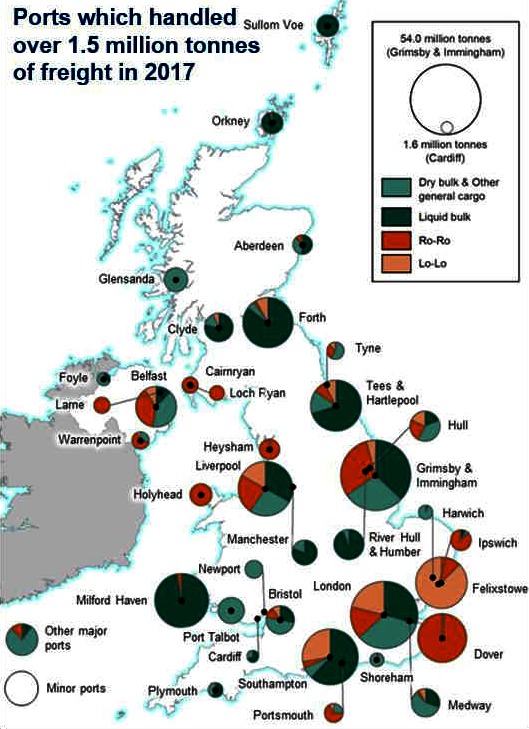
As well as setting out how we will reduce greenhouse gas emissions and
air quality pollutants from UK shipping, we will move to bring the UKís penalties for ships breaking environmental law in our waters in line with international best practice, while encouraging the use of advanced technologies to help maritime environmental law enforcement.
We have a duty to deliver on the international stage here too.
So as well as ratifying treaties such as the Ballast Water Management and Hong Kong conventions that seek to lessen maritimeís environmental impact, this document underlines how we will work with our partners at the IMO towards a global target of cutting maritime greenhouse gas emissions by at least 50% by 2050.
And we plan to use our international influence to tackle other environmental issues of global importance.
Such as marine litter and
plastics, illegal
fishing and protecting biodiversity.
While maintaining a regulatory framework which allows the UK to thrive and global trade to flow.
Great innovations, new trade horizons and environmental challenges, will make the coming decades an extraordinary time for the sector.
But to take full advantage of this exciting era ó we need to make sure our workforce has the skills to keep pace with changing technology.
I know that the sector is doing some great work on this front.
And the government has launched its own initiatives, such as the Year of Engineering, to inspire the next generation of engineers.
But there is still more to do.
Maritime 2050 lays out some of our solutions to the recruitment and skills issues facing your industry in future. About which my ministerial colleague
Nusrat Ghani will speak in more detail later.
Enabling the maritime sector to attract the brightest minds and the best skills will help ensure this country remains one of the best places in the world to do maritime business.
We have the largest global hub for maritime services in London and the lowest headline rate of corporation tax in the G7 and one which will fall to 17% next year.
Combined with world class universities and a UK flag that is a symbol of the very best quality.
But we canít rest on our laurels.
We have many global competitors who are quite capable of stealing a march on us.
So Maritime 2050 lays out the action we need to take to secure our long term success.
With a clear commitment to working and listening to industry, to further improve this countryís fiscal and regulatory environment for marine businesses, itís vital too that the whole country can continue to benefit from a thriving maritime sector.
Itís one of the industryís strongest selling points that its attributes are spread across this country.
With different areas boasting their own specialisms, whether in maritime services, shipbuilding or training and education.
This document lays out how we will support these maritime clusters.
And how we will use our influence in the international arena to exert positive change for the global maritime sector.
We are of course delighted to be hosts of the IMO here in London.
And Iíd like to take a moment to express my gratitude to Secretary General Kitack Lim for all his hard work on behalf of the maritime industry around the world.
Rest assured that in Maritime 2050 we have committed the UK to continue to maintain its leading role as an IMO member. Something that will continue long into future.
And this theme of collaboration and cooperation runs right through Maritime 2050.
If there is one message Iíd like you to take home tonight itís that the government is on your side.
Whether thatís through our support of Maritime UK, creating the right environment for maritime SMES to flourish.
Or showcasing Britainís maritime industry to the world through events, such as London International Shipping Week, to be held in September this year.
I look forward to seeing many of you there.
So finally Iíd like to extend my thanks to everyone who contributed to this document.
The UKís maritime sector may not always hit the headlines or get the attention it deserves, but it is one of this countryís great success stories, staffed by professional, dedicated and highly skilled people and part of a quality flag.
Maritime 2050 will enable those achievements to continue and allow the sector to further flourish over the coming decades.
So letís take inspiration from Brunel and our proud maritime past, letís harness the excitement of the innovation of today and be ambitious for our maritime future.
Thank you.
Published 28 January 2019
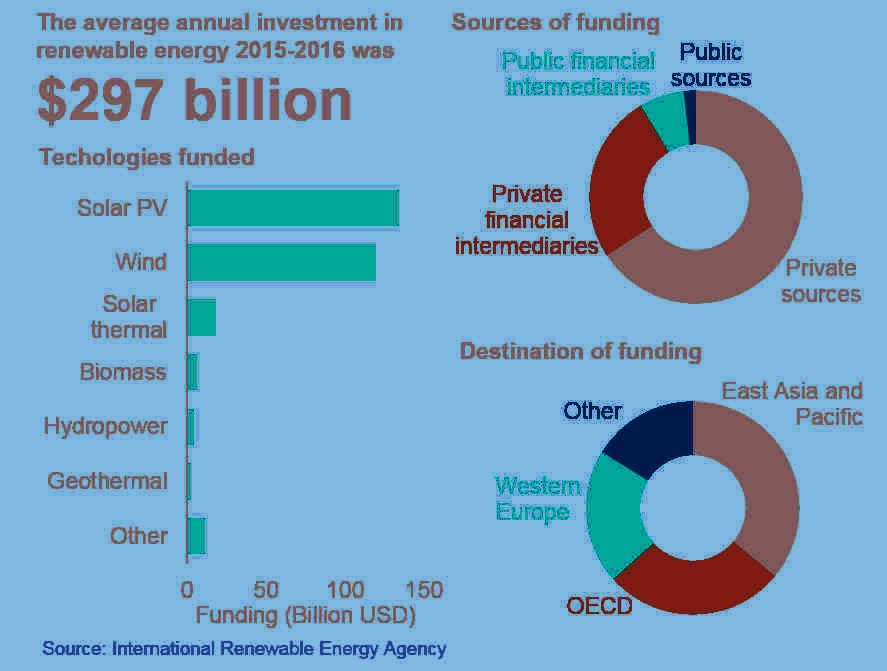
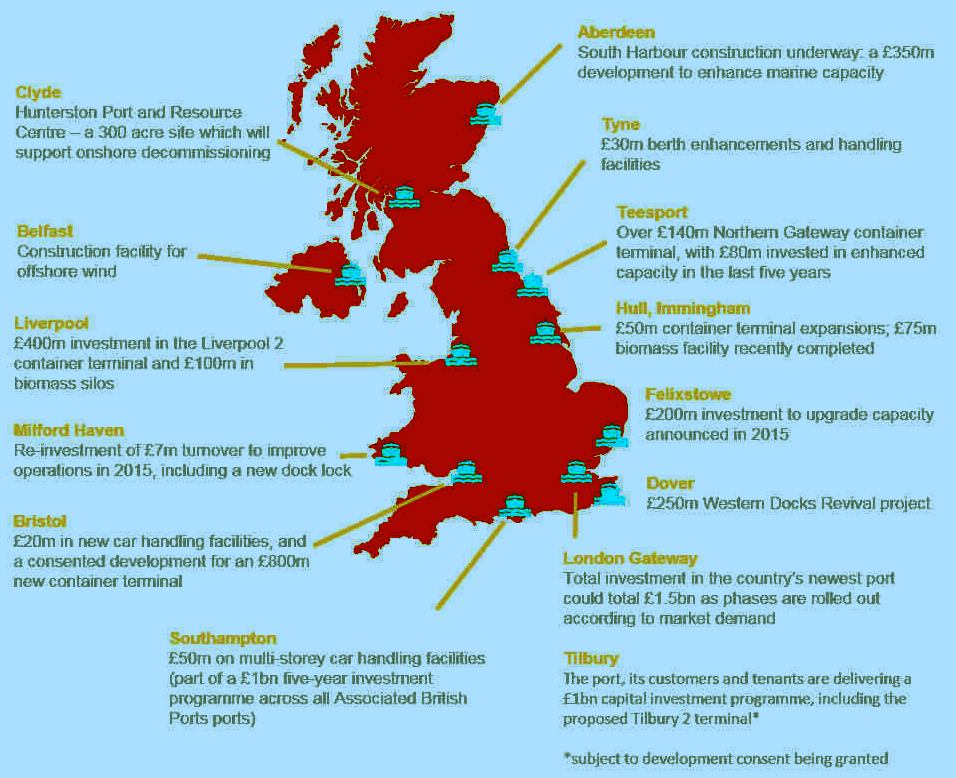

REPAIRED
ONCE ALREADY - Not a bad blend
in that one, pity it didn't last. The wear and tear of repairs to
potholes may do better with
a stronger repair compound. Who monitors the quality of the tarmac we
use on our roads. Should not high traffic areas have a different mix to
cope without constant repair after repair. Is there not a high speed
repair machine? We certainly need one.
CONSERVATIVE
MPS 2017-2018
|
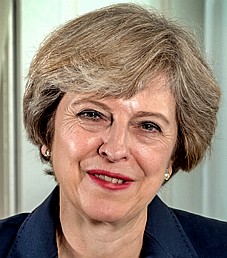
Theresa
May - Prime Mnister
MP
for Maindenhead
|
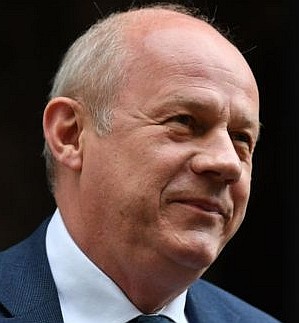
Damian
Green
MP
for Ashford
|

Philip
Hammond
MP
Runnymede & Weybridge
|

Boris
Johnson
MP
Uxbridge & South Ruislip
|
|
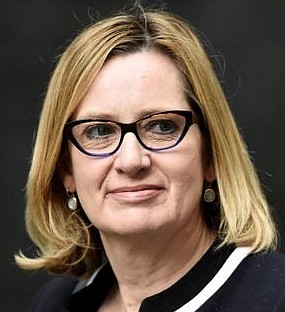
Amber
Rudd
MP
Hastings & Rye
|
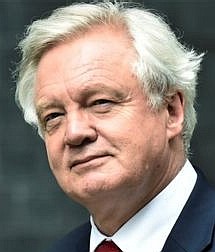
David
Davis
MP
Haltemprice & Howden
|
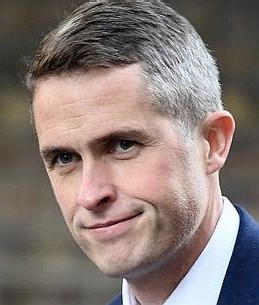
Gavin
Williamson
MP
South Staffordshire
|
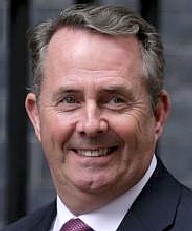
Liam
Fox
MP
North Somerset
|
|
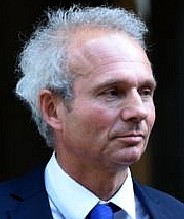
David
Lidlington
MP
for Aylesbury
|
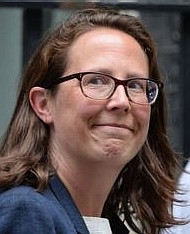
Baroness
Evans
MP
Bowes Park Haringey
|
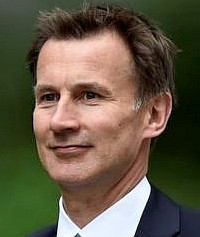
Jeremy
Hunt
MP
South West Surrey
|

Justine
Greening
MP
for Putney
|
|

Chris
Grayling
MP
Epsom & Ewell
|

Karen
Bradley
MP
Staffordshire Moorlands
|

Michael
Gove
MP
Surrey Heath
|
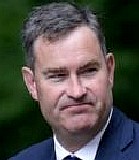
David
Gauke
MP
South West Hertfordshire
|
|
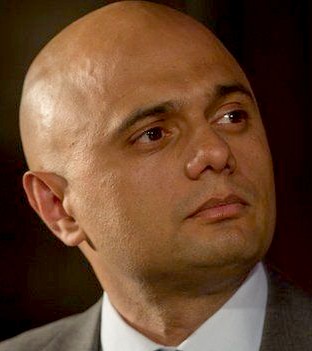
Sajid
Javid
MP
for Bromsgrove
|

James
Brokenshire
MP
Old Bexley & Sidcup
|

Alun
Cairns
MP
Vale of Glamorgan
|
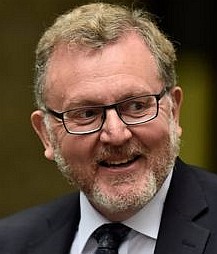
David
Mundell MP
Dumfriesshire
Clydes & Tweeddale
|
|
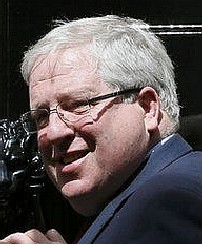
Patrick
McLoughlin
MP Derbyshire
Dales
|

Greg
Clark
MP
Tunbridge Wells
|

Penny
Mordaunt
MP Portsmouth
North
|

Andrea
Leadsom
MP South Northamptonshire
|
|

Jeremy
Wright
MP
Kenilworth & Southam
|

Liz
Truss
MP
South West Norfolk
|

Brandon
Lewis
MP
Great Yarmouth
|

MP
Nus
Ghani
MP
Wealden
|
|
|
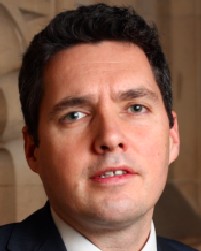
Huw
Merriman
MP
Battle
|
|
MP
|
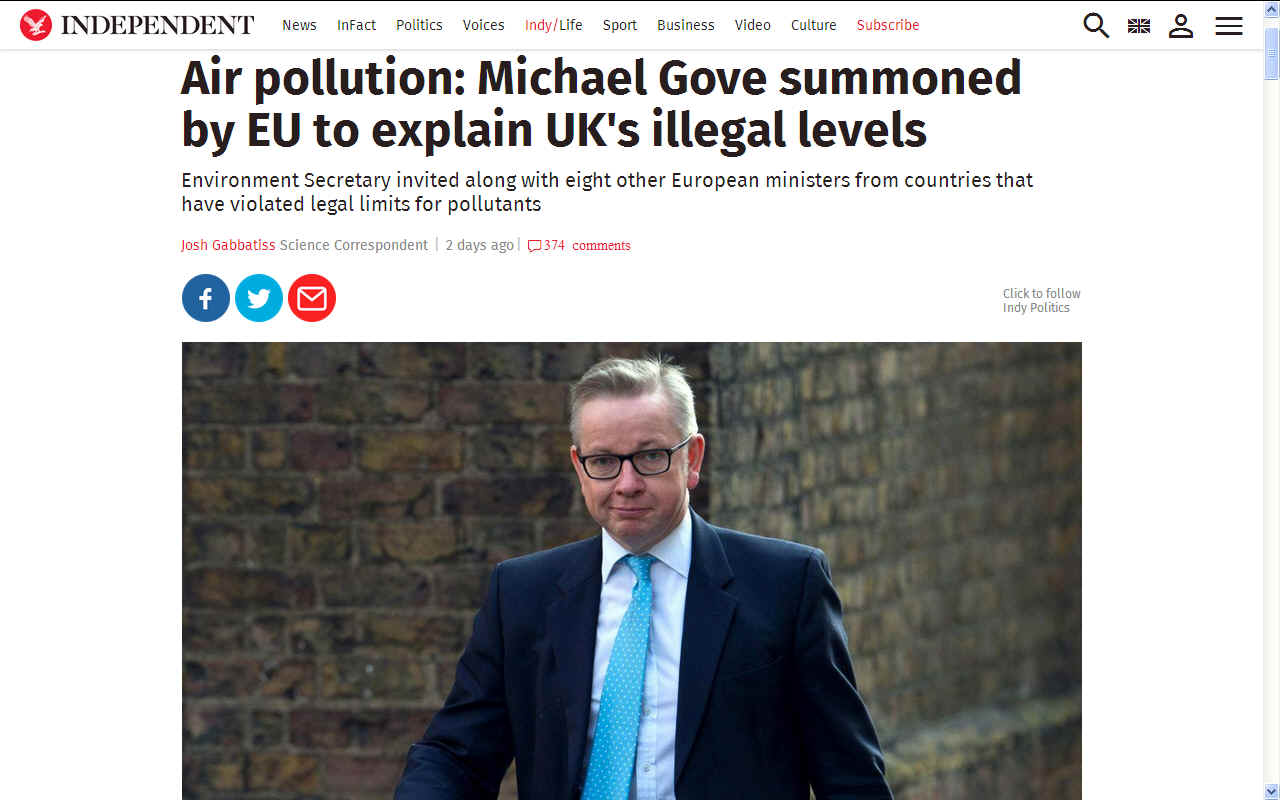
CONSERVATIVE
CLIMATE - Michael Gove has been summoned to Brussels because of his
party's failure to meet air pollution targets despite warnings about
which the Prime
Minister was aware of.
UK
POLITICS
The
United Kingdom has many political parties, some of which are
represented in the House of Commons and the House of Lords.
Below are links to the websites of the political parties that were
represented in the House of Commons after the 2015 General Election:
CONSERVATIVE
PARTY
CO-OPERATIVE
PARTY
DEMOCRAT
UNIONIST PARTY
GREEN
PARTY
LABOUR
PARTY
LIBERAL
DEMOCRATS
PLAID
CYMRU
SCOTTISH
NATIONAL PARTY
SINN
FEIN
SOCIAL
DEMOCRATIC AND LABOUR PARTY
UK
INDEPENDENCE PARTY
ULSTER
UNIONIST PARTY
Conservative
Party
Co-operative
Party
Democratic
Unionist Party
Green
Party
Labour
Party
Liberal
Democrats
Plaid
Cymru
Scottish
National Party
Sinn
Fťin
Social
Democratic and Labour Party
UK
Independence Party
Ulster
Unionist Party
We
are concerned with how the make up of the above parties and (reasonably)
popular policies may affect the Wealden district, because we are all
brothers on two islands in the Atlantic
Ocean and what we do or fail to do is likely to rebound on ourselves
and our fellow man in other nations around the world. How we act today
influences policies in other countries in our global community. It is
not just about us and our patch.
DISTRICT
& BOROUGH COUNCILS
East
Sussex has five District and Borough Councils, each with a border on
the coast. From west to east they are:
Eastbourne
Borough Council
Hastings
Borough Council
Lewes
District Council
Rother
District Council
Wealden
District Council
There
is also East
Sussex County Council as the provider of services to the 5 East
Sussex districts.
As
near neighbours and with councils now sharing facilities and working
together, these area of Sussex are included in our remit and an area
where climate
change and affordable
housing are issues that need urgent attention. Where the coastline
is a feature in every Council, Blue
Growth is a food
security issue, especially where this side of of our local economy
is under-exploited.

































